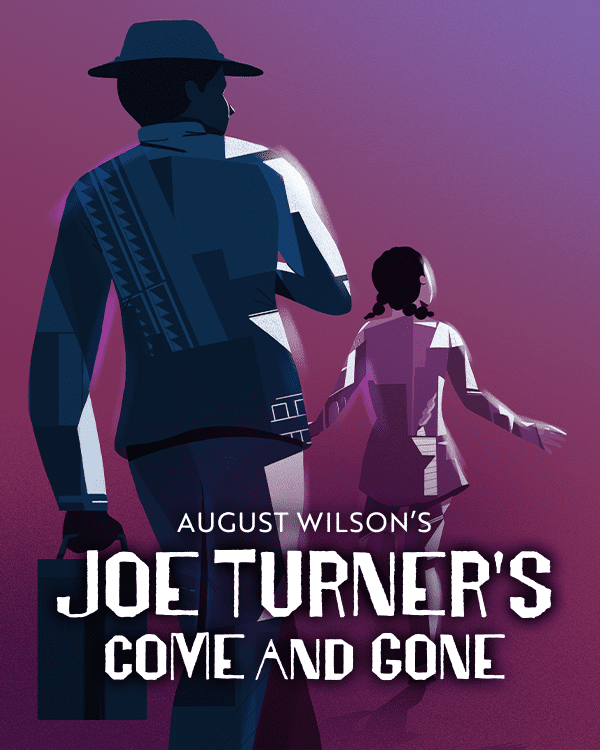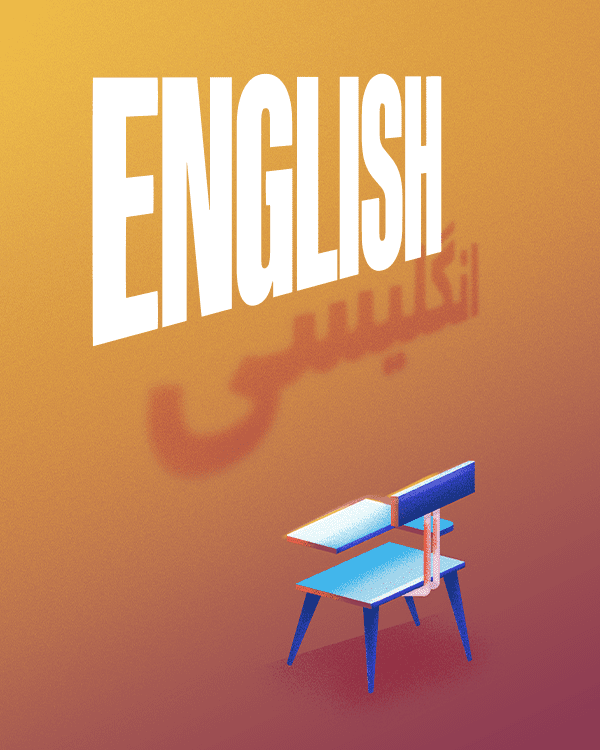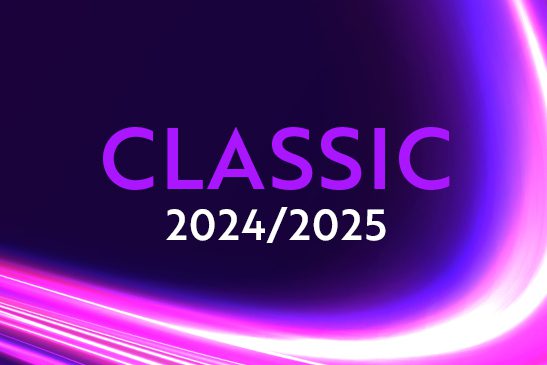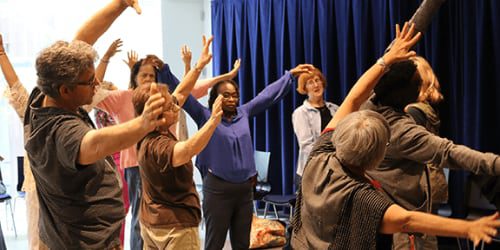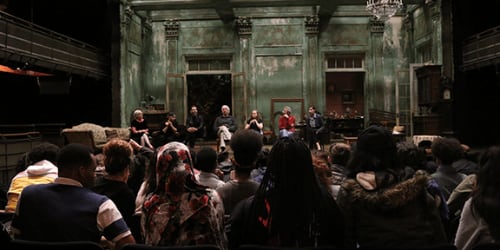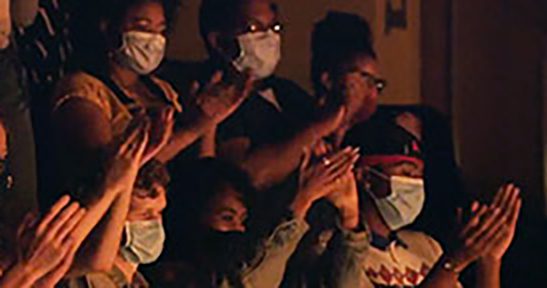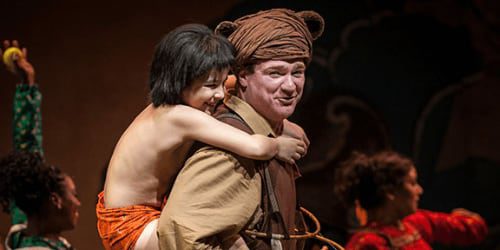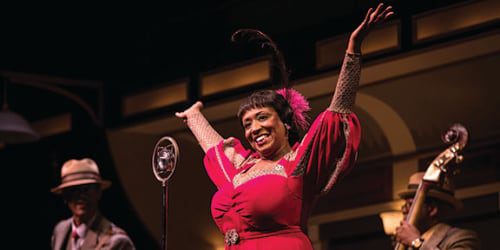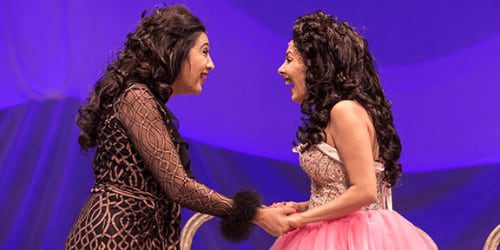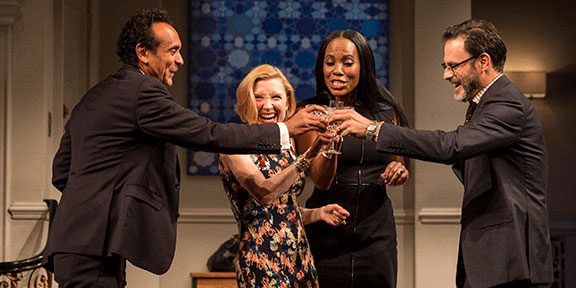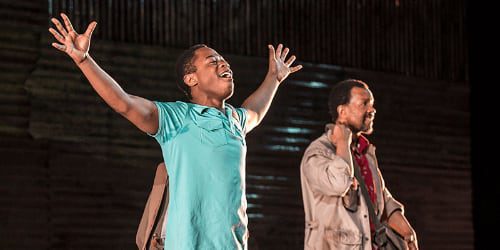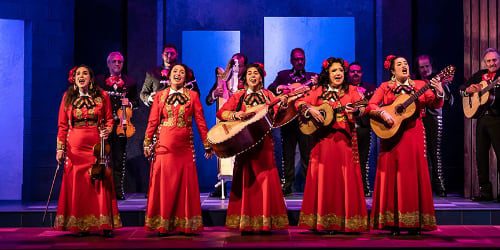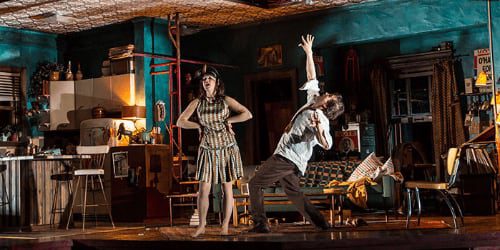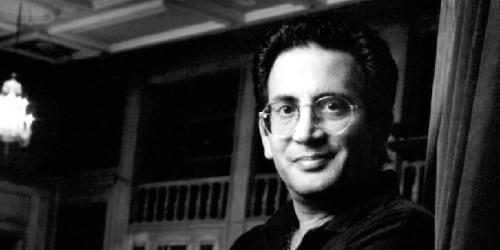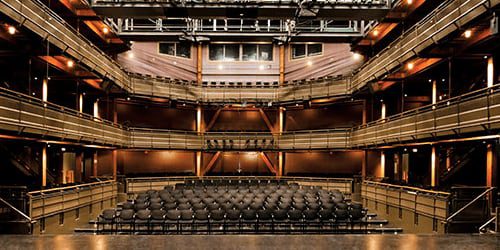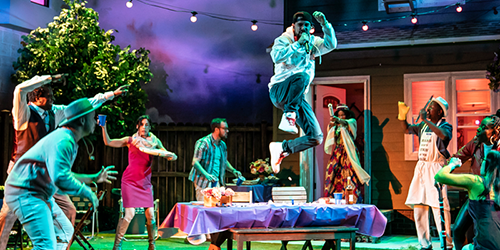The Matchbox Magic Flute is on stage now – March 24!
GET TICKETS
Director Mary Zimmerman offers up a matchbox version of The Magic Flute
By Thomas Connors
“GO BIG OR GO HOME.”
One might not immediately attach that notion to the work of Mary Zimmerman. After all, the award-winning writer and director revels in the poetry of small gestures and the magic that can be spun from simple props and scenery. Not that she hasn’t played on a large-scale, especially when it comes to opera. But the essence of a Zimmerman production isn’t a wow factor, but a deeply satisfying sense of wonder. The Magic Flute, Mozart’s well-loved, two-act singspiel — a form combining sung and spoken passages — seems tailor-made for Zimmerman’s sensibility. As her pared down production (five instruments, ten performers) opens on the Owen stage, Zimmerman shares her thoughts on this musical journey.
THOMAS CONNORS: In 2007, Metropolitan Opera general manager, Peter Gelb, invited you to direct Lucia di Lammermoor. Had you been thinking of tackling opera before that opportunity came along?
MARY ZIMMERMAN: My first opera was, in fact, The Magic Flute, with Chicago Opera Theater in 1996. But the costumes and set were rented from a prior production, so I was really just staging on top of someone else’s visual conception. But it was that experience, over twenty-five years ago, that put in me the great desire to do my own Flute. But to your question, I hadn’t been pursuing opera when Peter Gelb called me in 2006. The next opera I did was Galileo, Galilei at the Goodman in 2002. Philip Glass was the composer, and I wrote the lyrics. That little opera went to BAM in New York, and the Barbicon in London and is actually performed here and there to this day. And it is a bit of a precursor to this production, in that it was an attempt to make an opera that could live in a non-opera theater – and be sung eight times a week.
TC: Did you attend opera growing up, or as a young adult? Did you respond well to it?
MZ: Unbelievably, my first opera experience, when I was probably 12 or 13, was The Rake’s Progress, the opera with perhaps the least chance of seducing a child to the form. The second was a university production of Madame Butterfly, which my mother wanted to see because it had “a real cherry tree in it.”
TC: Can you say something about how your abiding interest in narrative and storytelling puts you in a good position to direct operas?
MZ: I’m not sure my work in theater did prepare me for the specific demands of opera. There’s a saying in theater that casting is ninety percent of directing. In opera, that is done by the musical higher-ups and it is done largely based on musical values. It’s difficult to spend months dreaming of a particular staging moment, and on the first day realizing that the singers just aren’t physically available for this thing you imagine, or don’t quite believe that precision in where and when you move could ever be as important as what and when you sing. They have a masterful understanding of how musical composition achieves its emotional and narrative power, but sometimes altogether disbelieve that visual composition has the same power. When I find that what I’ve imagined for them isn’t going to work, I have to come up with five alternatives. But this has all enriched my life and my theater practice beyond measure. I have learned a great deal from opera singers and I have nothing but enormous admiration and compassion for them.
TC: What set you on The Magic Flute?
MZ: It’s one of the sweetest, most playful creations on the face of the earth and very much in my wheelhouse as a story — fantastical, adventurous — a journey, with dancing animals, magical objects, lessons learned, great humor and philosophy. It is a testament to the importance of delight. A big thing compressed into a small space. It came to me all of a sudden, to do a teeny, tiny Magic Flute, in an intimate space.
TC: What challenges are you facing achieving this?
MZ: I’m adapting the libretto line by line and this has been incredibly absorbing and tricky. And, in structural terms, the second act as written does start to wander around a bit. It even gets confusing as to where we are and what’s going on. That’s something I’m very concentrated on. I want the story to have clarity and drive. Our production isn’t exactly an opera, it is not exactly Mozart’s Magic Flute. It is a hybrid, a playful variation. It’s bringing the opera form into conversation with the theater. Only one of our singers is a professional opera singer and the rest are musical theater artists, some of them very young. Our musicians come from very diverse musical backgrounds. This little Flute is more a creature of the theater, not opera. As am I.
Thomas Connors is a Chicago-based freelance writer and the Chicago Editor of Playbill.
